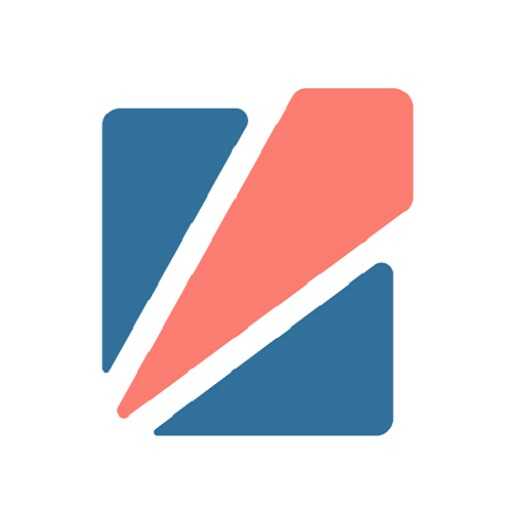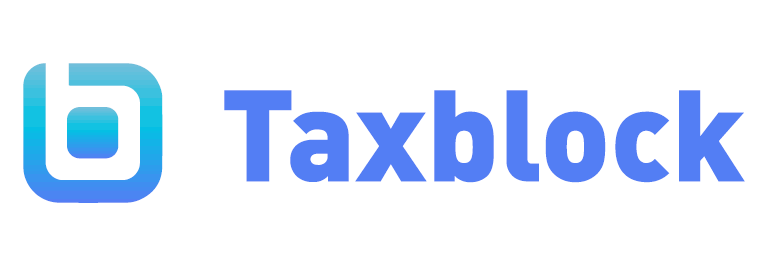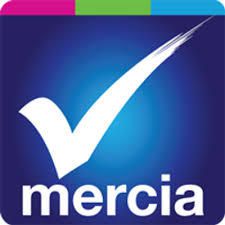Description

CompuTax

KDK Zen eTDS
Comprehensive Overview: CompuTax vs KDK Zen eTDS
CompuTax and KDK Zen eTDS are both software solutions designed to assist with tax management and compliance in India. They cater primarily to the needs of tax professionals, accountants, and organizations handling significant volumes of tax-related data and processes. Below is a comprehensive overview of each:
a) Primary Functions and Target Markets
CompuTax:
- Primary Functions:
- Income Tax Computation: Automates the calculation of taxable income and associated tax liabilities.
- Tax Filing: Facilitates electronic filing of income tax returns (ITRs) for various categories of taxpayers.
- TDS Management: Helps clients with Tax Deducted at Source (TDS) and Tax Collected at Source (TCS) related functionalities.
- Audit Preparation: Offers assistance in preparing for audits with necessary documentation and compliance checks.
- Generation of MIS Reports: Provides comprehensive management information system (MIS) reports for better decision-making.
- Target Markets:
- Chartered Accountants (CAs) and tax professionals.
- Medium to large-scale enterprises managing in-house tax compliance.
- Financial consultancy firms offering tax services.
KDK Zen eTDS:
-
Primary Functions:
- TDS/TCS Management: Specialized software for easy calculation, deduction, and filing of TDS and TCS returns.
- Form Generation: Enables generation and validation of Form 24Q, 26Q, 27Q, and 27EQ.
- Online Filing: Provides capabilities for e-filing of TDS returns with direct integration with the TRACES platform.
- Correction Facility: Allows for corrections and revising previously filed returns.
- Reports and Analytics: Offers a range of analytical reports for better understanding of TDS liabilities and compliance status.
-
Target Markets:
- Small to medium-sized enterprises (SMEs) focusing primarily on TDS compliance.
- Accounting firms and individual consultants focusing on TDS services.
- Organizations looking to simplify and automate TDS filing procedures.
b) Comparison in Terms of Market Share and User Base
-
Market Share:
- CompuTax enjoys a significant share of the market for comprehensive tax solutions, primarily due to its extensive feature set that covers a wide range of tax compliance needs beyond TDS. It is well-regarded among larger firms and professionals who need a toolkit for complete tax management.
- KDK Zen eTDS, on the other hand, focuses on the niche market of TDS compliance, making it popular among smaller firms and those who need specialized TDS solutions. Its user-friendly interface and specific focus make it widely used but it holds a smaller market share compared to full-suite solutions like CompuTax.
-
User Base:
- CompuTax has a broad user base comprised of larger accounting practices and enterprises that require a holistic approach to tax compliance.
- KDK Zen eTDS is favored by users who have primary needs centered on TDS, attracting SMEs and practitioners focusing on this particular aspect.
c) Key Differentiating Factors
-
Scope of Services:
- CompuTax provides a broader array of services encompassing entire tax management, including income tax computation and audit preparation alongside TDS functions.
- KDK Zen eTDS is more specialized, with a concentrated focus on TDS/TCS management.
-
Complexity and User-Friendliness:
- CompuTax can be more complex due to its comprehensive feature set, appealing to users who need an all-inclusive tax solution.
- KDK Zen eTDS, with its streamlined interface, is designed to be more user-friendly for those focusing specifically on TDS processes.
-
Target User Profile:
- CompuTax targets users seeking a multi-faceted tax solution catering to various tax compliance needs.
- KDK Zen eTDS targets users who need efficient, straightforward handling of TDS compliance without the added complexities of broader tax obligations.
In summary, while CompuTax offers a broader scope suitable for diverse tax compliance needs, KDK Zen eTDS provides a niche solution focusing on simplicity and efficiency in TDS management. The choice between the two largely depends on the specific needs and size of the organization or practice.
Contact Info

Year founded :
Not Available
+1 702-432-0808
Not Available
United States
Not Available

Year founded :
Not Available
Not Available
Not Available
Not Available
Not Available
Feature Similarity Breakdown: CompuTax, KDK Zen eTDS
CompuTax and KDK Zen eTDS are software solutions designed primarily for tax filing and compliance, particularly for the filing of TDS (Tax Deducted at Source) returns in India. Here's a breakdown of their similarities, differences, and unique features:
a) Common Core Features
-
TDS Return Filing: Both CompuTax and KDK Zen eTDS provide functionalities to prepare and file TDS returns electronically, complying with the Indian statutory requirements.
-
Challan and Form Management: They offer management tools for challans and statutory forms, like Form 24Q, 26Q, 27Q, and Form 16/16A, ensuring users can handle quarterly and annual returns efficiently.
-
E-Filing Support: Both software support e-filing capabilities, allowing users to directly upload TDS returns to the government portal.
-
Validation and Error Check: Built-in validation features to ensure that the returns are error-free and compliant with the Income Tax Department’s guidelines.
-
Deductor Management: Manage multiple deductors (entities that deduct tax) and related records, which is crucial for accountants handling multiple clients.
-
Data Import/Export: Ability to import data from various formats, such as Excel, and export data/reports, which is essential for seamless integration with other systems.
b) User Interface Comparison
-
CompuTax: Typically described as having a more traditional and function-focused interface. It may appeal to users who are accustomed to legacy software solutions and prefer straightforward functionality over modern aesthetics.
-
KDK Zen eTDS: Known for a more modern and user-friendly interface. KDK often emphasizes ease of navigation and accessibility, which could be more appealing to new users or small businesses with less complex compliance needs.
c) Unique Features
-
CompuTax Unique Features:
- Comprehensive Tax Solutions: Beyond TDS, CompuTax offers broader tax solutions, including direct and indirect tax compliance, which can appeal to firms looking for an all-in-one solution.
- Deep Customization: Offers more detailed customization options for reports and forms, catering to specific compliance needs of larger firms.
-
KDK Zen eTDS Unique Features:
- Speed and Performance: Users often note faster operation and processing speeds, which can make a difference when handling large amounts of data.
- Integration with Zen Income Tax: Seamless integration with other KDK software products like Zen Income Tax, which facilitates broader financial and tax management within the same ecosystem.
When choosing between these two, users typically consider the scale of their operations, their comfort with software interfaces, and whether they need additional functionalities beyond TDS management.
Features

Not Available

Not Available
Best Fit Use Cases: CompuTax, KDK Zen eTDS
When evaluating software solutions like CompuTax and KDK Zen eTDS, it is important to consider the specific features and capabilities each platform offers, as well as the needs of the business or project in question. Here's a breakdown of how these solutions can be best utilized in different scenarios:
a) CompuTax Use Cases
-
Large Enterprises and Corporates: CompuTax is ideal for large organizations that require comprehensive tax solutions, including complex tax computations, compliance, and reporting capabilities. Its robust features can handle the intricacies of tax obligations for multinational companies or large domestic businesses.
-
Tax Consulting Firms: Firms specializing in tax consulting and compliance services would benefit from CompuTax's extensive features, enabling them to manage multiple clients' tax filings and compliance requirements efficiently.
-
Industries with Complex Tax Structures: Industries such as manufacturing, real estate, and finance, which often face complex tax regulations and requirements, can leverage CompuTax's advanced tools for accurate tax computations and compliance.
-
Companies Involved in International Transactions: Businesses that deal with cross-border transactions may find CompuTax advantageous due to its capability to handle various tax treaties and international taxation intricacies.
b) KDK Zen eTDS Use Cases
-
Small to Medium Enterprises (SMEs): SMEs engaged primarily in domestic operations can benefit from KDK Zen eTDS's straightforward and user-friendly interface for managing their Tax Deducted at Source (TDS) obligations efficiently.
-
Service-based Businesses: Companies in the service sector, such as IT services, hospitality, or small-scale contractors, would find KDK Zen eTDS particularly useful for managing their TDS calculations and e-filing requirements without the need for more complex tax solutions.
-
Businesses with Basic TDS Needs: For businesses whose main tax compliance requirement is TDS management, KDK Zen eTDS provides a focused and cost-effective solution without the additional features that come with broader tax software products.
-
Accountant and Payroll Providers: Accounting firms or payroll processors handling TDS on behalf of small to mid-sized clients can utilize KDK Zen eTDS for its efficiency and simplicity in handling TDS-related tasks.
d) Catering to Different Industry Verticals or Company Sizes
-
Industry Vertical Adaptability: CompuTax offers detailed and advanced functionality tailored to industries with complex tax requirements, such as manufacturing, pharmaceuticals, and finance. It provides flexibility and customization to handle unique industry-specific needs.
-
Company Size Considerations: CompuTax is better suited for larger enterprises requiring comprehensive tax solutions, while KDK Zen eTDS is designed to cater to small to medium-sized businesses that need a more straightforward approach to TDS management.
-
Scalability and User Scale: CompuTax can support a large number of users and extensive data processing, making it suitable for big corporations or consulting firms with multiple users. KDK Zen eTDS, on the other hand, offers a simplified interface and operations optimal for smaller teams or individual tax consultants.
By understanding these distinctions, businesses can make more informed decisions based on the specific needs dictated by their size, industry, and the complexity of their tax obligations.
Pricing

Pricing Not Available

Pricing Not Available
Metrics History
Metrics History
Comparing undefined across companies
Conclusion & Final Verdict: CompuTax vs KDK Zen eTDS
Conclusion and Final Verdict for CompuTax and KDK Zen eTDS
When evaluating tax filing software like CompuTax and KDK Zen eTDS, we must consider factors like pricing, user-friendliness, features, customer support, and scalability. Each product has its strengths and weaknesses, and choosing the right one depends on the specific needs of the user.
a) Best Overall Value
KDK Zen eTDS generally offers the best overall value due to its comprehensive feature set, ease of use, and competitive pricing. It usually caters well to both individual professionals and smaller accounting firms, providing good support and regular updates to accommodate changes in tax laws.
b) Pros and Cons of Each Product
CompuTax
-
Pros:
- Robust Features: Comprehensive in handling all aspects of taxation such as direct tax filing, audits, and compliance.
- Scalability: Suitable for larger accounting firms with high-volume processing needs.
- Customization: Offers tailored solutions for different user needs, particularly beneficial for larger organizations.
-
Cons:
- Complexity: Might be overwhelming for first-time users or small/medium-sized businesses due to its extensive features.
- Cost: Tends to be more expensive, particularly for users who may not need all its advanced features.
- Interface: Some users find the interface outdated and less intuitive compared to competitors.
KDK Zen eTDS
-
Pros:
- User-Friendly: Known for its intuitiveness and ease of navigation, making it ideal for individuals and smaller firms.
- Cost-Effective: Offers a cost-effective solution with good value for money, especially for small to mid-sized businesses.
- Customer Support: Provides effective customer service, with strong emphasis on user assistance.
-
Cons:
- Limited Scalability: May not have the exhaustive set of features needed by very large firms or those with complex taxation needs.
- Advanced Features: Might lack certain advanced functionalities that heavy users could find necessary.
c) Specific Recommendations
-
For Small to Medium Enterprises (SMEs) and Individual Practitioners:
- KDK Zen eTDS is recommended due to its cost-effectiveness and user-friendliness. It simplifies compliance with minimal training required, making it a hassle-free option for smaller operations.
-
For Large Firms or Complex Tax Needs:
- CompuTax is more suitable given its robust features and scalability. Despite a steeper learning curve, it offers the advanced functionalities required for complex tax scenarios and larger teams.
-
General Recommendation:
- Evaluate the specific needs of your organization, considering team size, budget, and volume of transactions. Utilize free trials or demos when available to experience each platform's interface and performance within your workflow. This will provide a clearer perspective on which tool aligns best with your operational needs.
Ultimately, the choice between CompuTax and KDK Zen eTDS should be guided by the complexity of your tax requirements and the value you place on ease of usability versus comprehensive functionality.
Add to compare
Add similar companies



